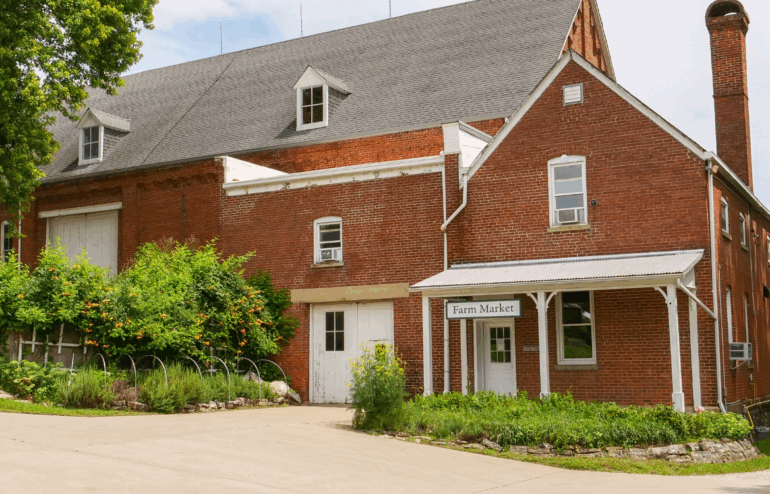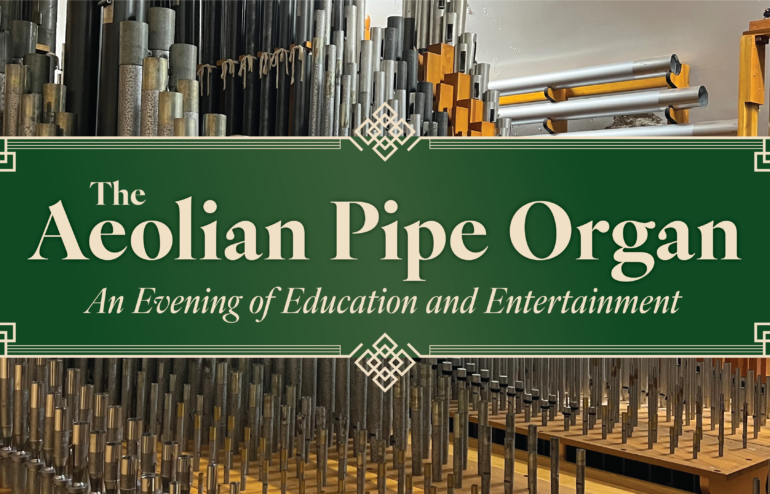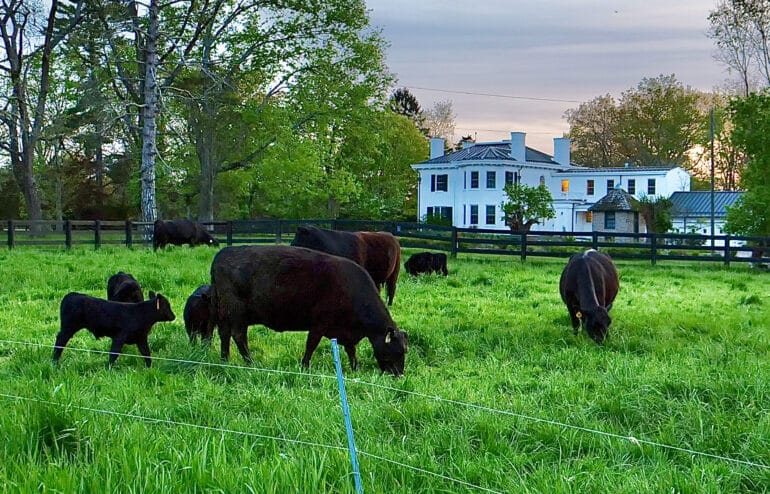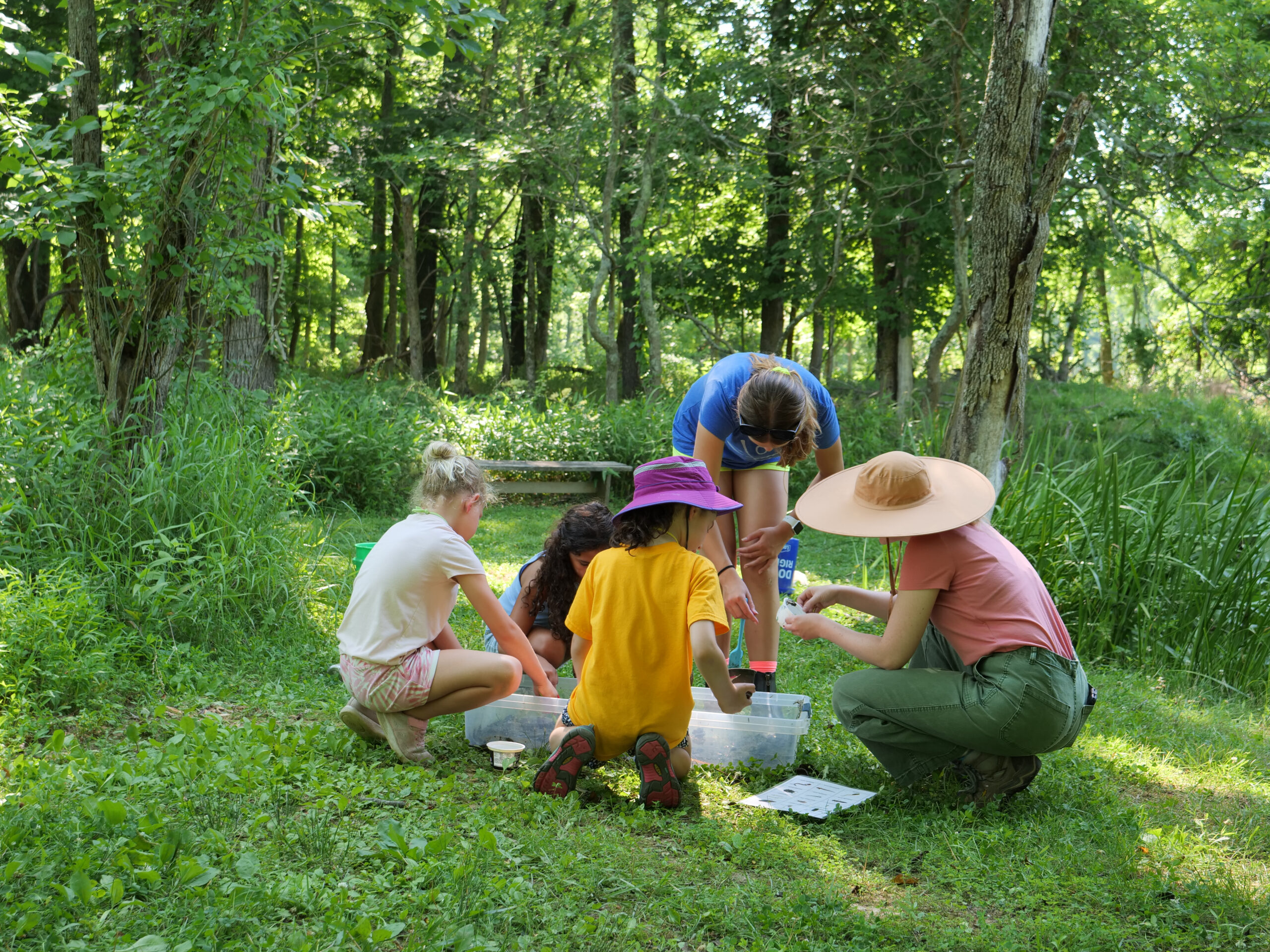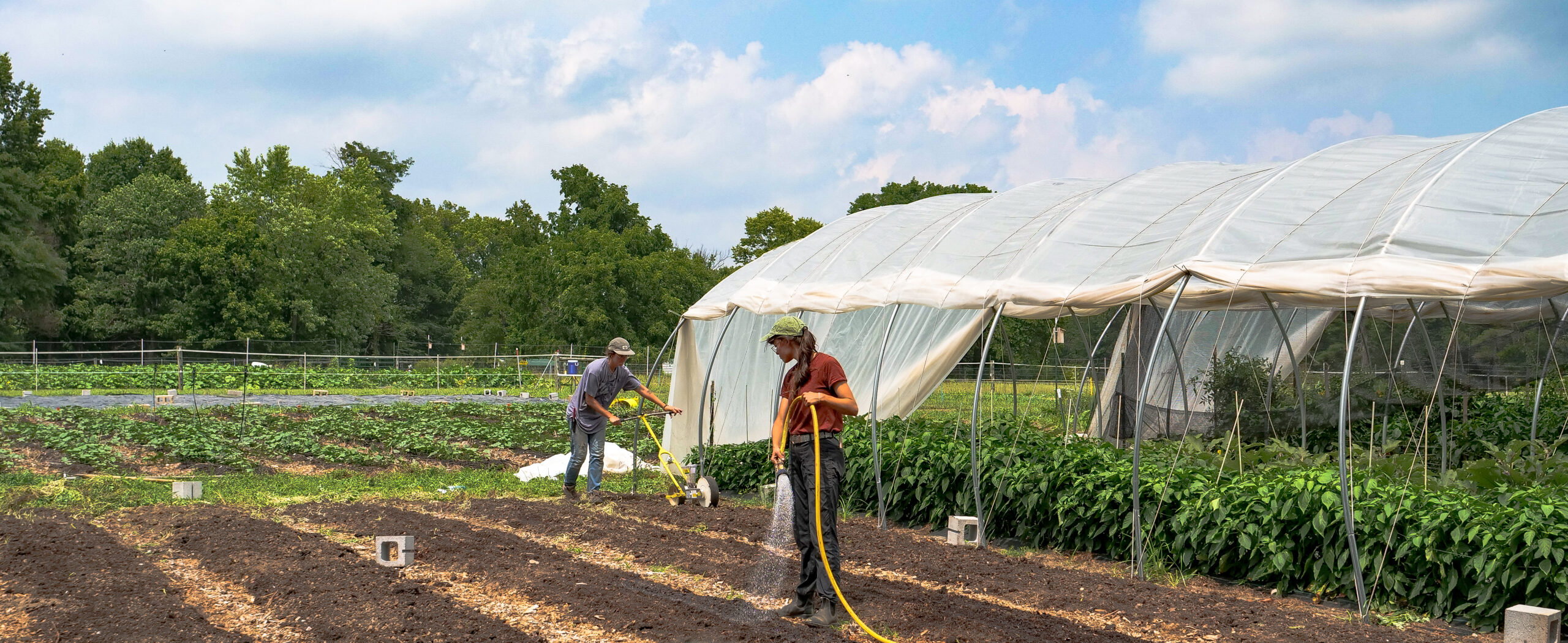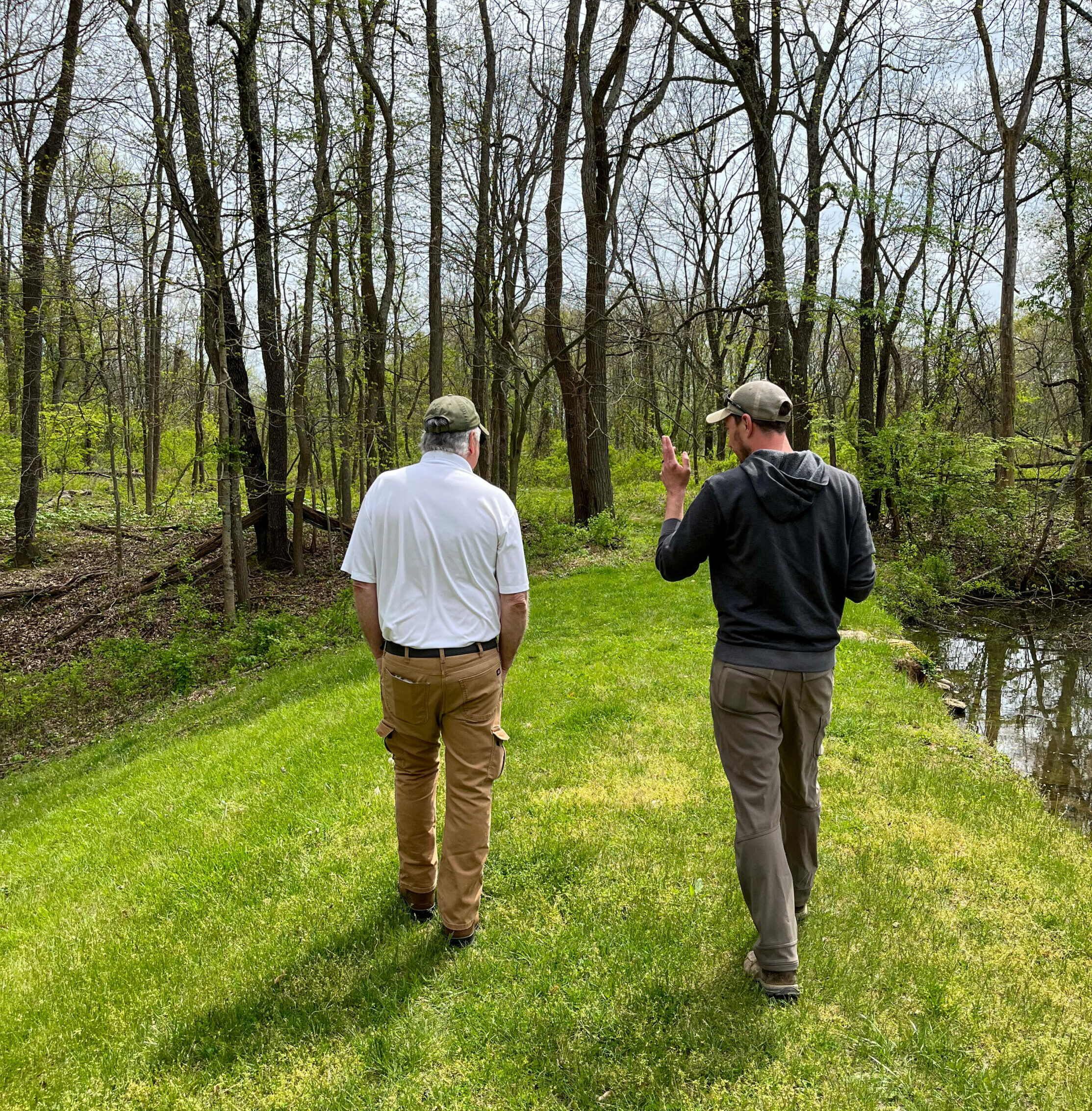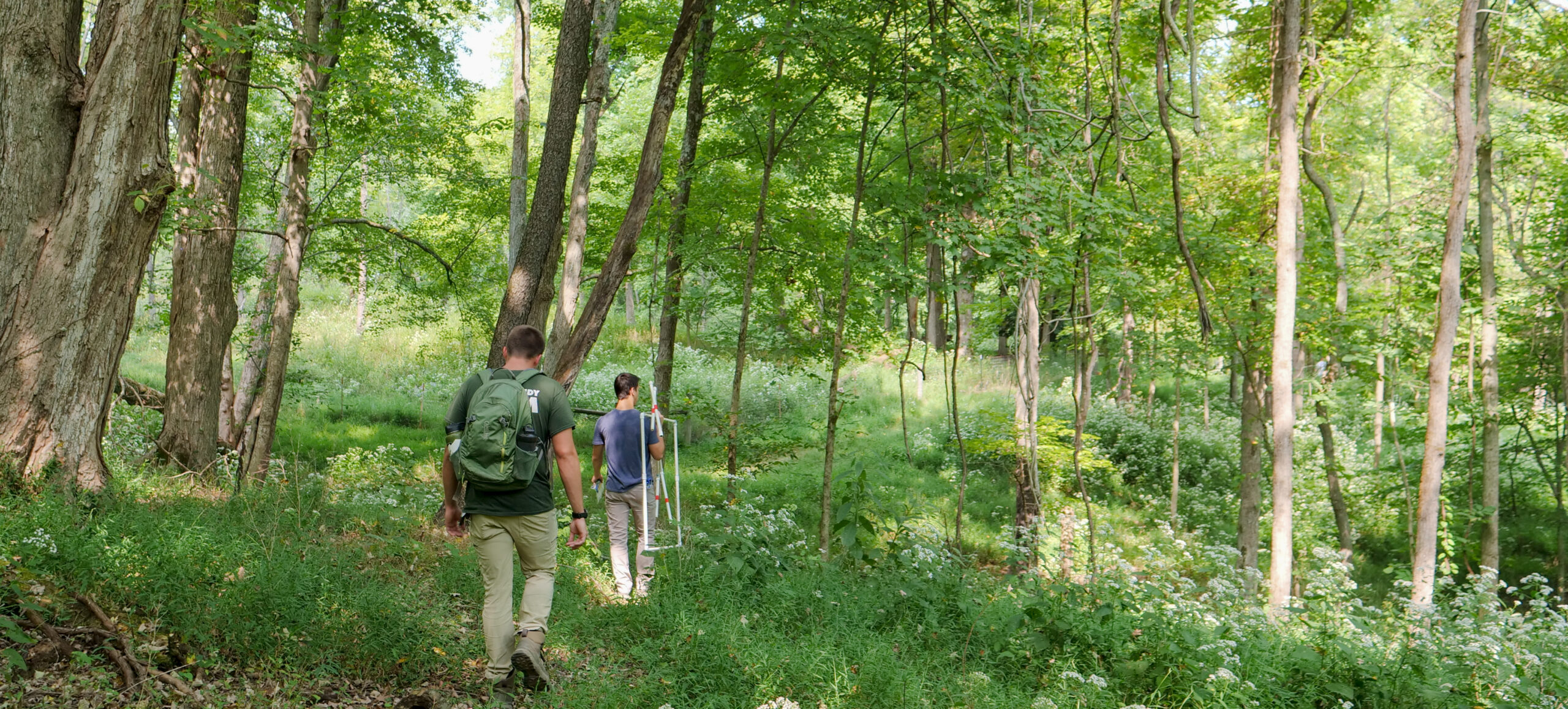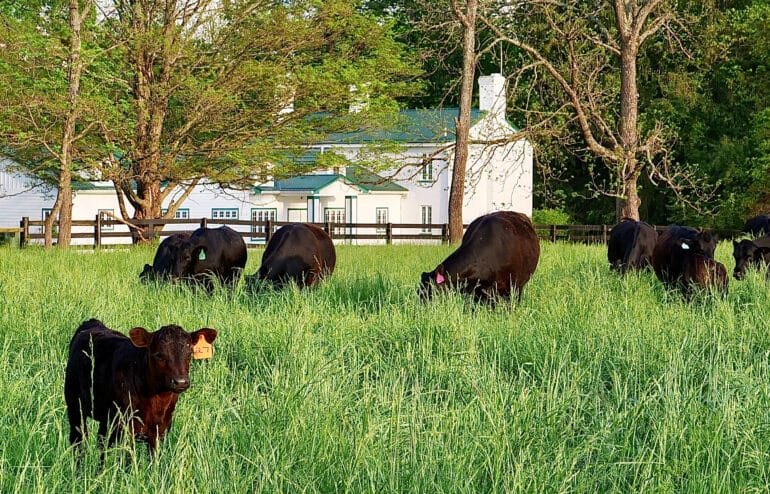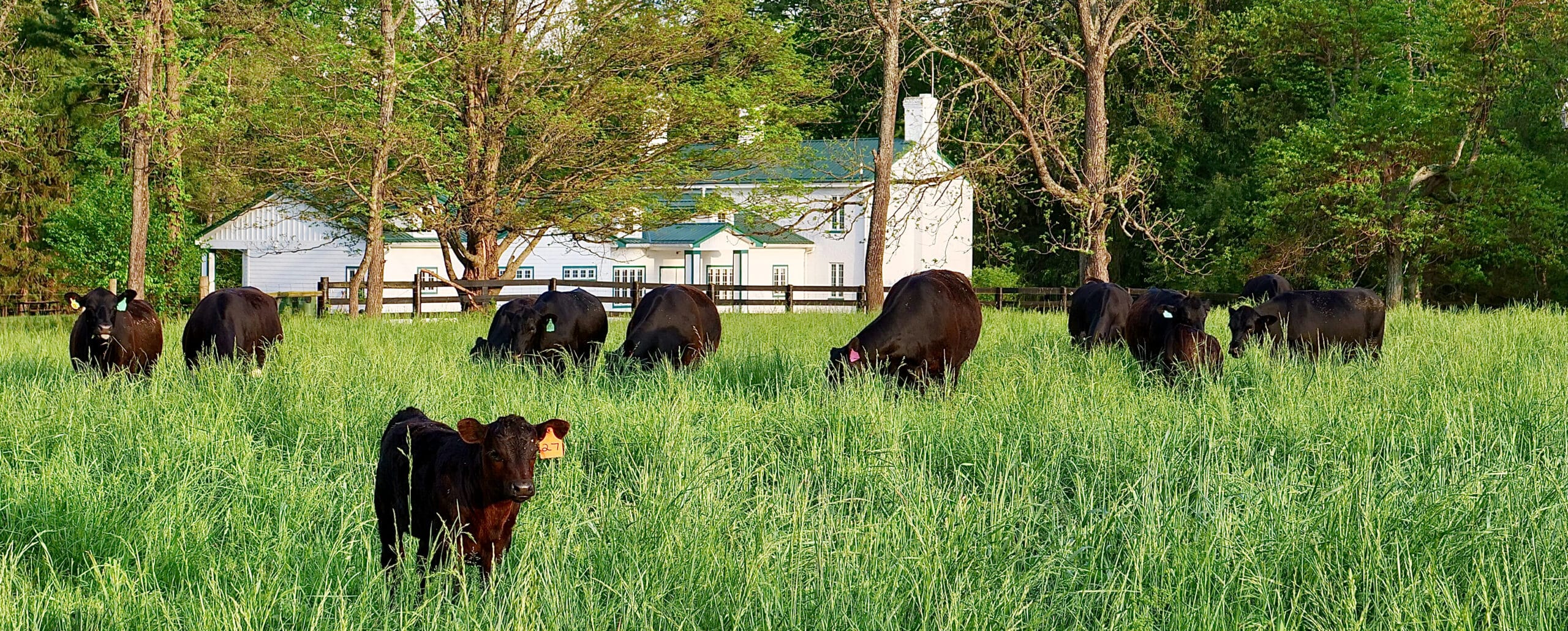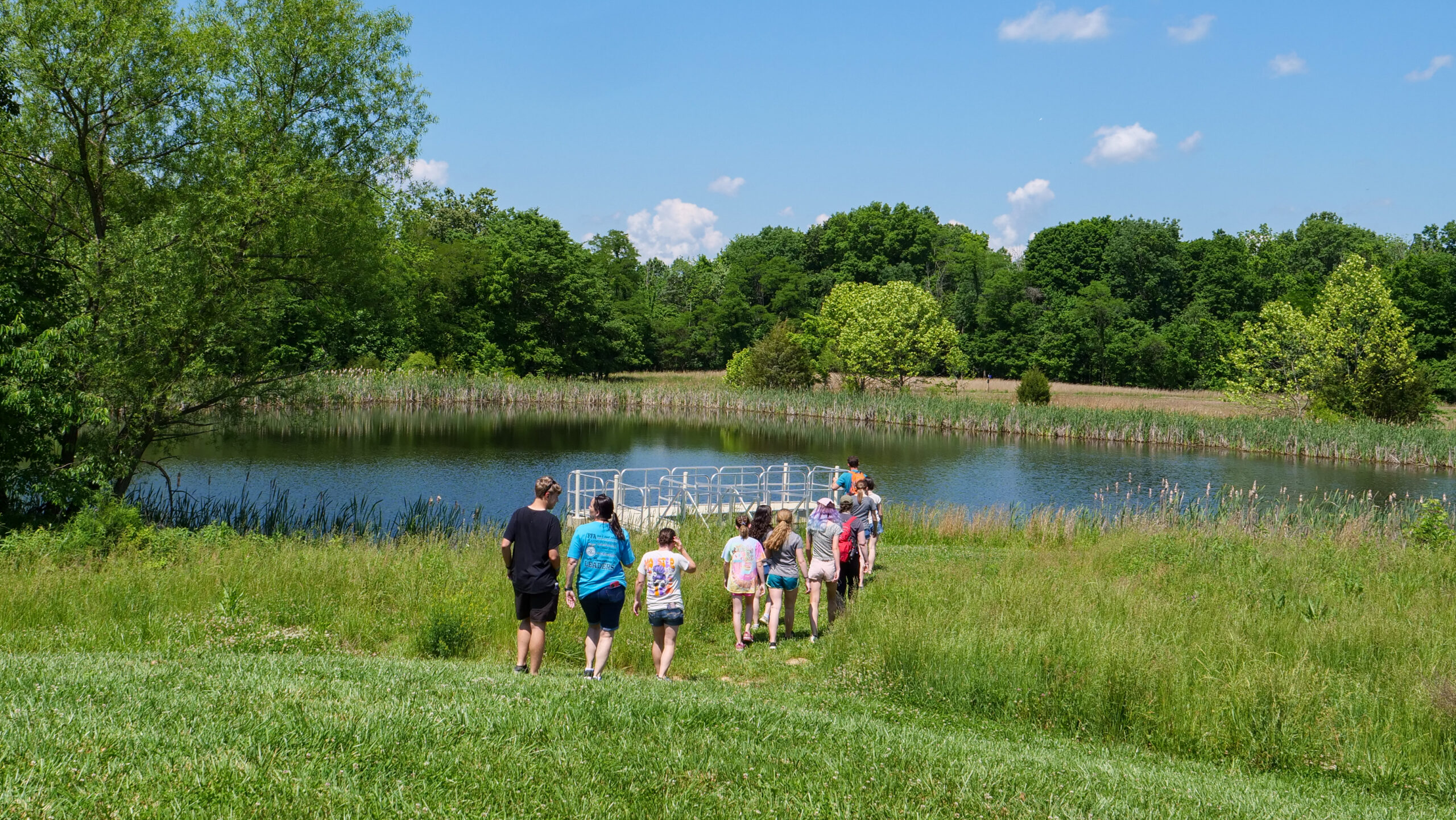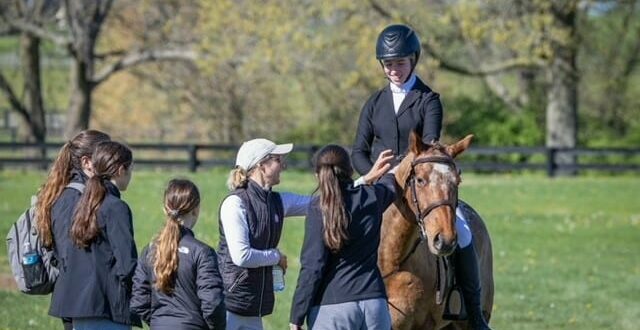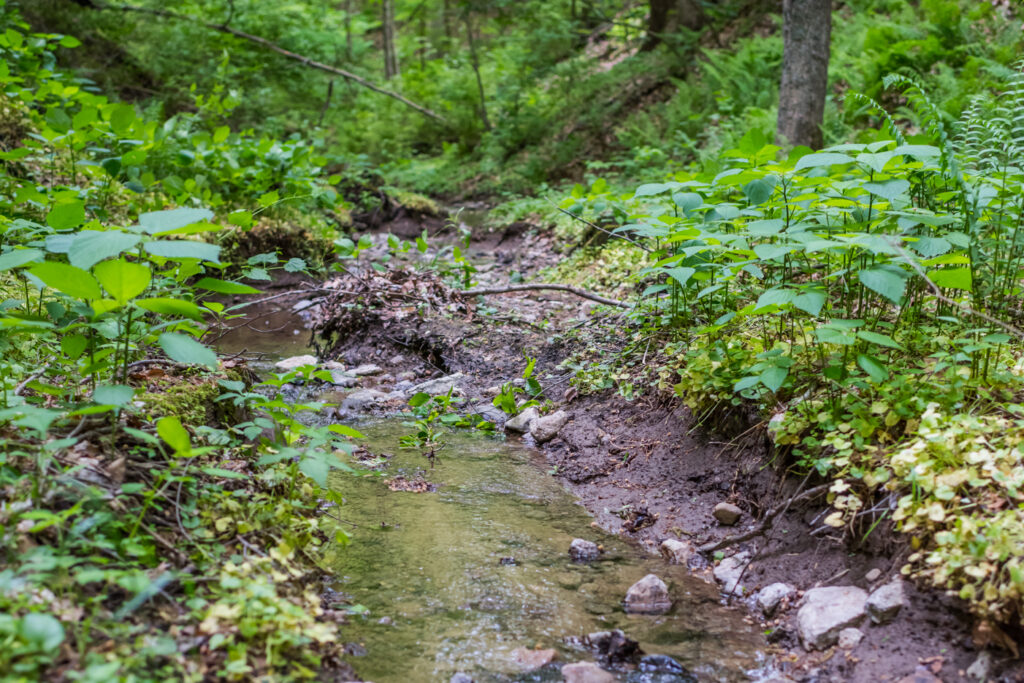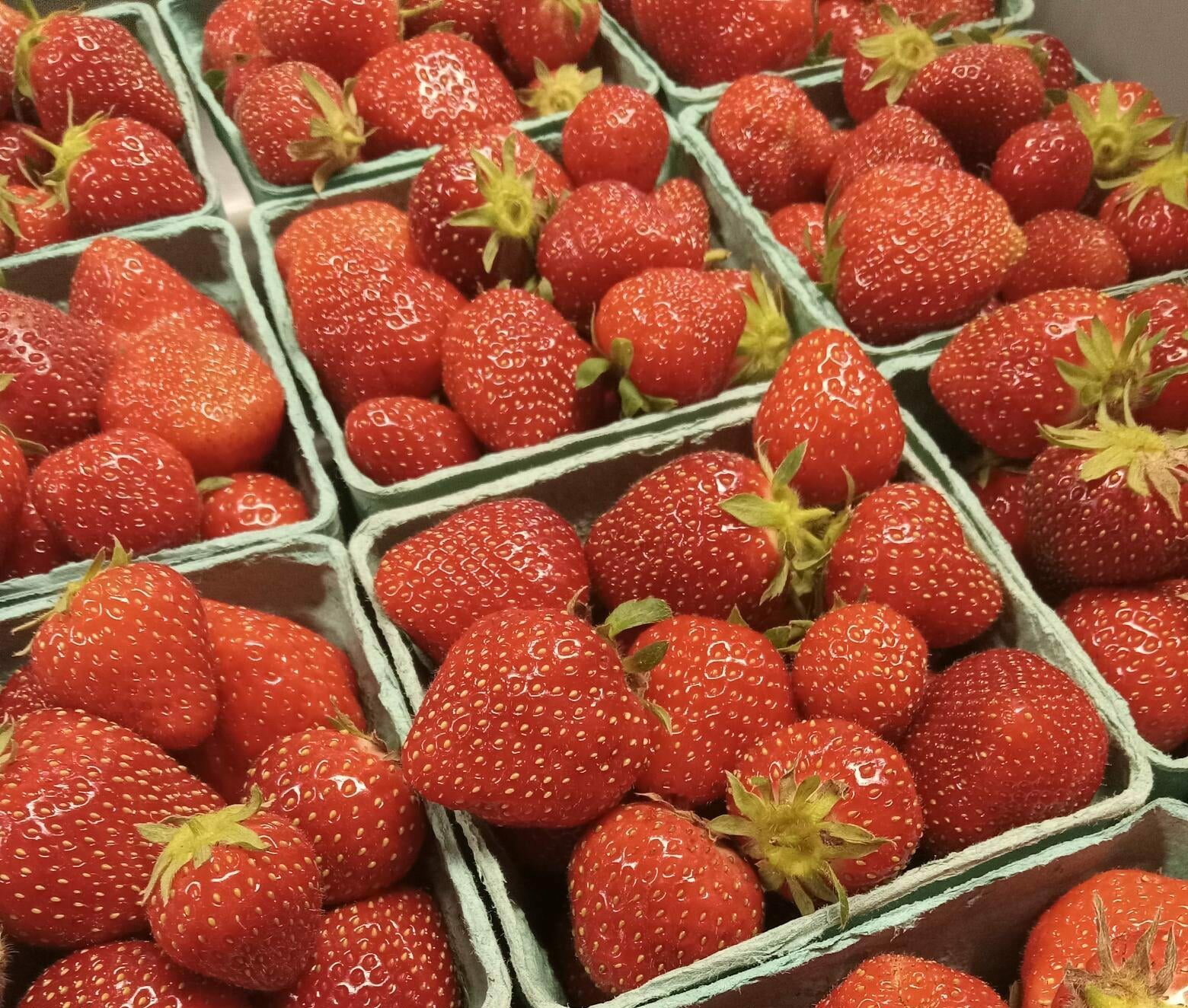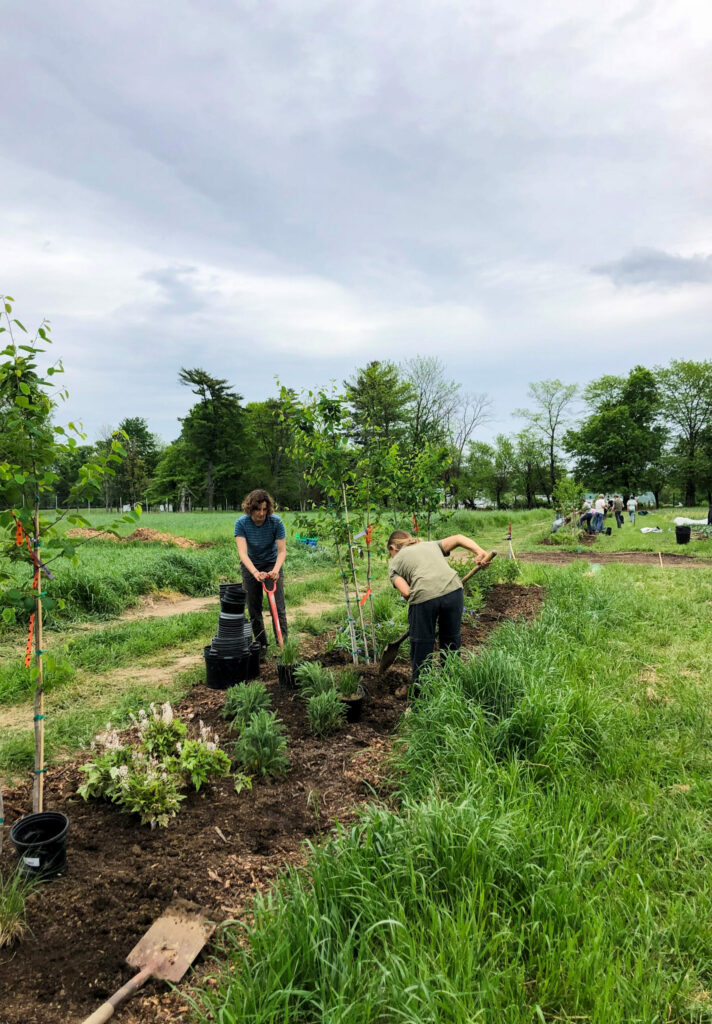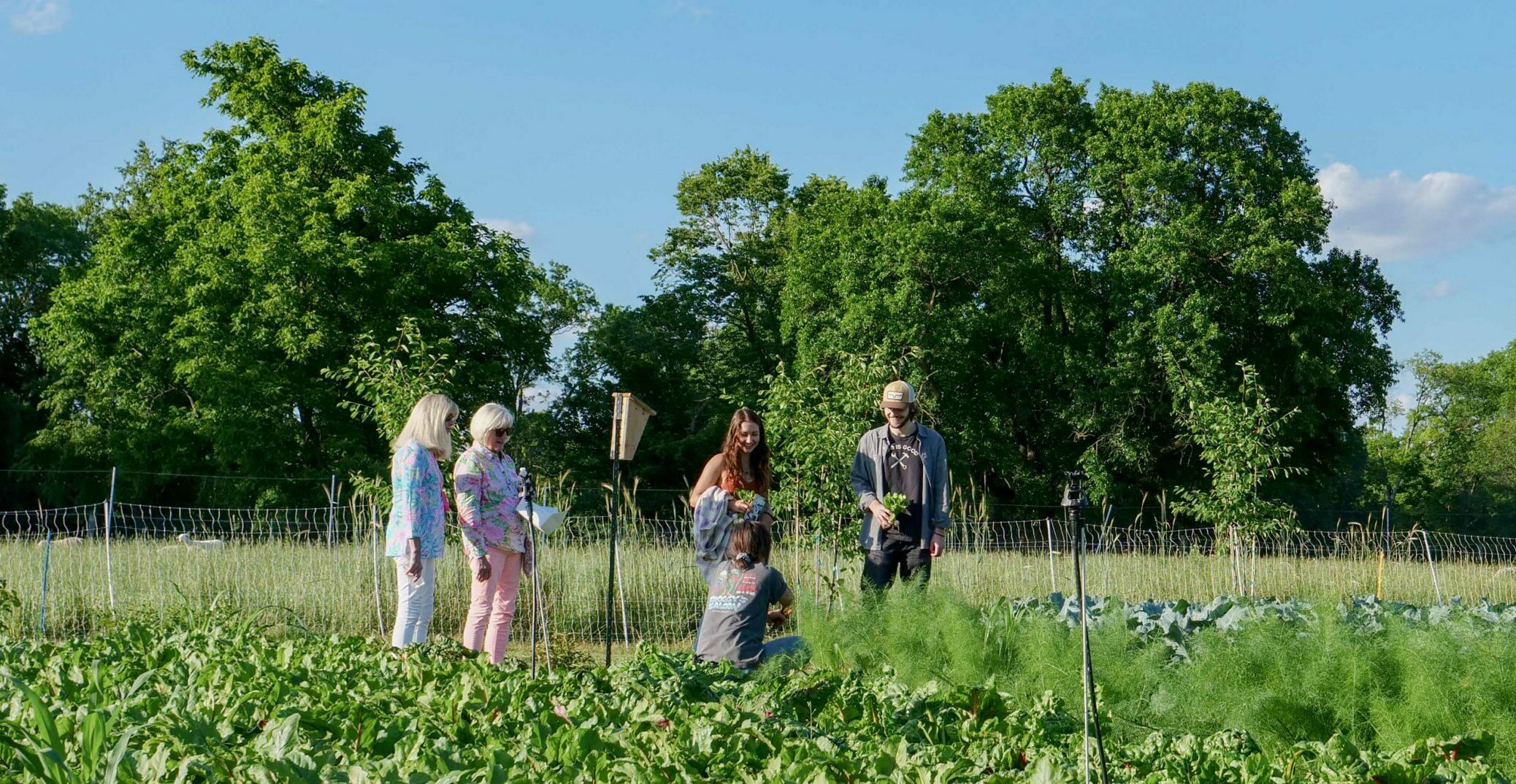
Michaela Farm Product Availability
We are located at Greenacres Michaela Farm Market: 3127 IN-229, Batesville, IN 47006
You may shop in store or order in advance
Email us at michaelamarket@green-acres.org
or call us at 812-933-0661.
Regular Market Hours:
Tuesday – Friday: 1 pm – 5 pm
Saturday: 9 am – 1 pm
Sunday – Monday: closed
Holiday Market Hours:
The Farm Market will be open normal hours except for the following changes:
Wednesday, Dec 24 – Friday, Dec 26: Closed
Wednesday, Dec 31: 1pm – 3 pm
Thursday, Jan 1: Closed
Regular hours resume Friday, Jan 2 (1 pm – 5 pm).
Eggs
Pricing is available in-store.
Pasture Raised Eggs are available in the Farm Market.
If you want to learn more about our mobile chicken coop, click here to see a video!
100% Grassfed, Grass Finished Meat
Please note: All of our meats are frozen. All items sold as packages weigh roughly 1 pound.
- Beef, Bones ($5/lb)
- Beef, Ground ($8.50/pkg)
- Beef, Ribeye Steak ($22/lb)
- Beef, Rump Roast ($10/lb)
- Beef, Shank Steak ($8/lb)
- Beef, Sirloin Steak ($12/lb)
- Chicken, Backs ($3/lb)
- Chicken, Sausage Links (Hot Italian, $7.25/pkg)
- Chicken, Sausage Links (Sweet Italian, $7.25/pkg)
- Chicken, Whole Heritage ($5/lb)
- Chicken, Whole Stewing ($3.50/lb)
- Lamb, Ground ($11/pkg)
- Lamb, Leg Roast (Bone-in, $16/lb)
- Lamb, Stew Meat ($12/pkg)
- Pork, Bacon (Uncured Slices, $12/lb)
- Pork, Ham (Uncured Bone-in, $8/lb)
- Pork, Sausage (Breakfast Links, $7.25/pkg)
Fresh Vegetables & Herbs
- Beets ($4/bunch)
- Cabbage (Green & Napa, $6/each)
- Carrots (topped, $6/lb)
- Kohlrabi (without tops, $4/bunch)
- Onions (Yellow Storage, $2/lb)
- Parsley ($3/bunch)
- Radish, Red ($3.50/lb)
- Radish, Watermelon ($3/lb)
- Squash, Winter (Hubbard, $2/lb)
- Sweet Potatoes ($2.50/lb)
- Turnips (Hakurei, $4/lb)
Place your pre-order
Frequently Asked Questions
How does online ordering work?
-
-
- View availability: Check the list above for the latest available products.
- Place your order: Submit your order via:
- The order form at the bottom of the Availability Page
- Phone call to the Farm Market number
- Receive confirmation: Our market staff will email you to confirm availability.
- Pick up and pay: Stop by during market hours to pick up and pay for your order.
-
Can I add to my order when I arrive at the market?
Yes! You can make changes or add items when you arrive at the market. Please note that in-store options may be limited, so ordering in advance is still recommended, especially for meat products.
When is pickup available?
-
-
- Tuesday – Friday: 1 pm to 5 pm
- Saturday: 9 am to 1 pm
-
These are also our new walk-in hours.
Can I still shop in-store?
Absolutely! The market is open for walk-in customers during pickup hours. While we encourage pre-orders—especially for meat items—you’re welcome to browse and shop during these times.
Do I have to pre-order?
Pre-ordering is encouraged, especially for meat or other limited-quantity items, but it’s not required. Walk-ins are always welcome during market hours!
What payment methods are accepted?
We accept:
-
-
- Cash
- Credit cards (including Tap to Pay)
- Checks
-
Why is the market process changing?
We’re enhancing your experience to bring more of Greenacres to you:
-
-
- Education: Learn about regenerative farming, how your food is grown, and Greenacres’ mission.
- Better customer service: Talk with knowledgeable staff, ask questions, and get personalized support.
- New product offerings: Including meat and other items not previously available.
- Convenient payment: Now accepting credit cards.
- Future opportunities: This new system allows us to grow into programs like CSA memberships.
-
What are the benefits for customers?
-
-
- Better visibility of what’s available before visiting
- Streamlined shopping and pickup
- Access to new products and payment options
- A chance to engage more deeply with Greenacres staff and mission
-

